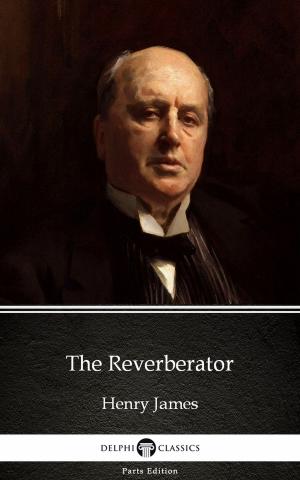| Author: | Mary Robinson | ISBN: | 6610000020188 |
| Publisher: | PublishDrive | Publication: | July 11, 2017 |
| Imprint: | Merkaba Press | Language: | English |
| Author: | Mary Robinson |
| ISBN: | 6610000020188 |
| Publisher: | PublishDrive |
| Publication: | July 11, 2017 |
| Imprint: | Merkaba Press |
| Language: | English |
With the approach of the thirteenth century, the world awoke from its long and dreamless sleep. Then began the age of faith, the miraculous century, starving for lack of bread and nourished upon heavenly roses. St. Louis and St. Elizabeth, Dominic the eloquent and the fiery Bonaventura, Thomas Aquinas and Francis the glorioso poverello di Dio, proclaim the enthusiastic spirit of the age. It is an age of chivalry no less in religion than in love, an age whose somewhat strained and mystical conception of virtue is sweetened by a new strong impulse of human pity. The world begins to see; and the green growth of the earth, the birds of the air, the fishes of the sea, become clear and noticeable things in the eyes of the saints. The world awakes and feels. Jean de Matha and Félix de Valois, gentlemen of Meaux, visit the prisons of France, and redeem many hundred captives from Morocco. On all sides men begin to love the sick, the poor, the sinful; even to long for sickness and poverty, as if in themselves they were virtuous; even to wonder whether sin and evil may not be a holy means for mortifying spiritual pride. To rescue the captive, to feed the hungry, to nurse the leper, as unawares Elizabeth of Hungary tended Christ in her Thuringian city—this is the new ideal of mankind. And this age of feeling is no less an age of speculation, of metaphysical inquiry, of manifold heresies and schisms. No new Bernard stops with his earnest dogma the thousand theories which everywhere arise and spread.
The modern age has begun. The saints of the preceding years had been men of a more militant or monastic turn, dogmatic minds like Bernard of Clairvaux, Norbert, Thomas à Becket. The era of charity and speculative thought begins when the twelfth century is drawing near the close...
With the approach of the thirteenth century, the world awoke from its long and dreamless sleep. Then began the age of faith, the miraculous century, starving for lack of bread and nourished upon heavenly roses. St. Louis and St. Elizabeth, Dominic the eloquent and the fiery Bonaventura, Thomas Aquinas and Francis the glorioso poverello di Dio, proclaim the enthusiastic spirit of the age. It is an age of chivalry no less in religion than in love, an age whose somewhat strained and mystical conception of virtue is sweetened by a new strong impulse of human pity. The world begins to see; and the green growth of the earth, the birds of the air, the fishes of the sea, become clear and noticeable things in the eyes of the saints. The world awakes and feels. Jean de Matha and Félix de Valois, gentlemen of Meaux, visit the prisons of France, and redeem many hundred captives from Morocco. On all sides men begin to love the sick, the poor, the sinful; even to long for sickness and poverty, as if in themselves they were virtuous; even to wonder whether sin and evil may not be a holy means for mortifying spiritual pride. To rescue the captive, to feed the hungry, to nurse the leper, as unawares Elizabeth of Hungary tended Christ in her Thuringian city—this is the new ideal of mankind. And this age of feeling is no less an age of speculation, of metaphysical inquiry, of manifold heresies and schisms. No new Bernard stops with his earnest dogma the thousand theories which everywhere arise and spread.
The modern age has begun. The saints of the preceding years had been men of a more militant or monastic turn, dogmatic minds like Bernard of Clairvaux, Norbert, Thomas à Becket. The era of charity and speculative thought begins when the twelfth century is drawing near the close...















